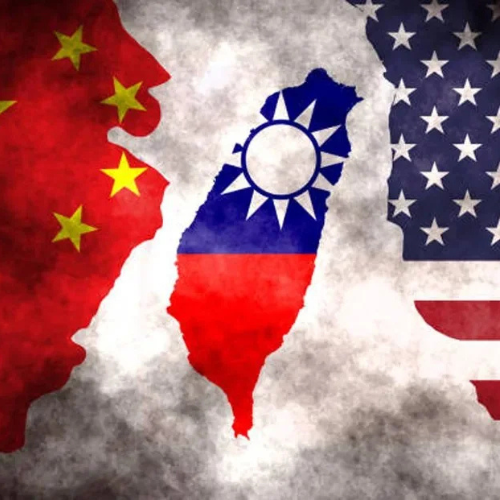China has taken a bold step in response to the United States’ recent approval of weapons sales to Taiwan. On Thursday, Beijing announced sanctions against 13 American military firms. This decision has raised tensions between the two global powers, reflecting China’s frustration over what it sees as a violation of its sovereignty.
The US arms deal, worth $385 million, includes spare parts and support for F-16 fighter jets and radar systems for Taiwan. The arms sales, combined with a visit by Taiwan’s president through US territory, have sparked outrage in China.
Why China Sanctioned US Firms
China views Taiwan as part of its own territory, even though the island is self-ruled and has its own democratic government. Beijing considers any foreign support for Taiwan, including arms sales or meetings with its leaders, as interference in its internal affairs.
Taiwan’s president, Lai Ching-te, is seen by China as a leader pushing for separation from the mainland. His recent transit through Hawaii and Guam, during an official visit to allies in the Pacific, added fuel to the fire. China has repeatedly warned other countries, especially the US, against supporting Taiwan in any way.
Iranian Oil Exports Hit with US Sanctions on 35 Entities and Vessels
China’s Foreign Ministry said the arms sales and interactions with Taiwan’s leaders harm China’s sovereignty and territorial integrity. In response, they imposed strict sanctions on American firms involved in the arms deals.
List of Sanctioned US Firms
The 13 American firms targeted by China are mostly involved in advanced military technology, including drones and defense systems. Some of these firms had recently taken part in a trade mission to Taiwan.
The sanctioned firms include:
- Teledyne Brown Engineering Inc.
- BRINC Drones Inc.
- Shield AI Inc.
- Kratos Unmanned Aerial Systems Inc.
- Rapid Flight LLC
- Red Six Solutions
- SYNEXXUS Inc.
- Firestorm Labs Inc.
- HavocAI
- Neros Technologies
- Cyberlux Corporation
- Domo Tactical Communications
- Group W
These firms specialize in cutting-edge technologies like autonomous drones, communication systems, and artificial intelligence (AI) tools for military purposes. For example, Shield AI is known for developing drones that can operate without GPS or communication links, making them useful in battlefields where signals are jammed.
U.S. Tightens Grip on China’s Chip Industry with Export Restrictions
China also imposed sanctions on six high-ranking executives from large defense firms, including Raytheon and BAE Systems. The sanctions include freezing their assets in China and banning them from entering the country. Chinese citizens and businesses are now prohibited from doing any business with these executives or the sanctioned firms.
Impact of the Sanctions
China’s decision to sanction these firms is seen by many as largely symbolic. Most of the targeted firms have little or no direct business ties with China. However, such measures can still disrupt supply chains, as seen earlier when Chinese sanctions on a US drone manufacturer caused production delays globally.
The sanctions also highlight how deep the disagreements between the US and China run, particularly over Taiwan. While the US has been selling arms to Taiwan for decades, these transactions have always angered Beijing.
In addition to the arms sale, China was also furious about Taiwan’s president stopping in the US. Beijing conducted military drills near Taiwan earlier this year and may continue its aggressive posture as tensions escalate.
By targeting the firms and executives involved, China is sending a clear signal of its disapproval. Although the sanctions may not cause immediate financial harm to the firms, they reflect the growing rivalry between the two countries over Taiwan, a region that remains one of the most sensitive issues in US-China relations.
This latest move by China adds to the long list of actions both sides have taken against each other in their ongoing struggle for influence, particularly regarding Taiwan. For now, the situation remains tense, with no signs of either side backing down.


